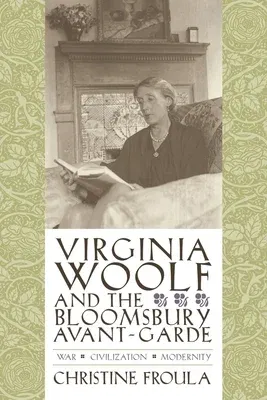Christine Froula
(Author)Virginia Woolf and the Bloomsbury Avant-Garde: War, Civilization, ModernityPaperback, 13 February 2007

Qty
1
Turbo
Ships in 2 - 3 days
In Stock
Free Delivery
Cash on Delivery
15 Days
Free Returns
Secure Checkout

Reading Age
Ages: 22
Grade Levels
17
Part of Series
Gender and Culture
Part of Series
Gender and Culture (Paperback)
Print Length
432 pages
Language
English
Publisher
Columbia University Press
Date Published
13 Feb 2007
ISBN-10
0231134452
ISBN-13
9780231134453
Description
Product Details
Audience:
Ages: 22
Author:
Book Format:
Paperback
Country of Origin:
US
Date Published:
13 February 2007
Dimensions:
22.61 x
15.24 x
2.54 cm
Educational Level:
Grade Levels: 17
ISBN-10:
0231134452
ISBN-13:
9780231134453
Language:
English
Location:
New York
Pages:
432
Publisher:
Weight:
635.03 gm